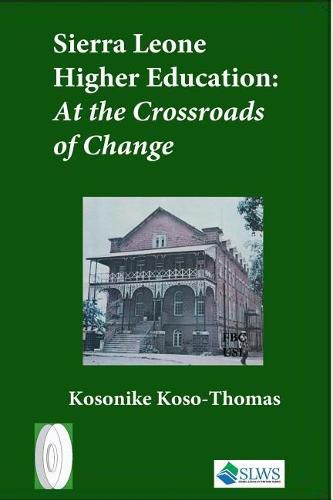Readings Newsletter
Become a Readings Member to make your shopping experience even easier.
Sign in or sign up for free!
You’re not far away from qualifying for FREE standard shipping within Australia
You’ve qualified for FREE standard shipping within Australia
The cart is loading…






The book traces the establishment of a faculty of Engineering in a traditional liberal arts university. The author shows how it was difficult to alter tradition, even when change was necessary for development in a country, with an economy dependent on the exploration of its mineral and marine resources. The author traces the practice of engineering at the dawn of independence in the country, from its origins in the indigenous science and technology of ancient Africa. He highlights the inadequacies of that level of science and technology, to propel the country towards economic growth and social advancement. Those considerations were pivotal in the decision of the University of Sierra Leone to introduce relevant training, to produce the professional engineering manpower to address those inadequacies. The book gives the story of the cuts and thrusts of the process, and the tensions and acrimony that attended them. It describes the continuing blossoming of the faculty under successive deans and ends with an analysis of the challenges, which the country faces in its development and prosperity objectives in the twenty-first century, and the role the faculty must play in facing them.
$9.00 standard shipping within Australia
FREE standard shipping within Australia for orders over $100.00
Express & International shipping calculated at checkout
The book traces the establishment of a faculty of Engineering in a traditional liberal arts university. The author shows how it was difficult to alter tradition, even when change was necessary for development in a country, with an economy dependent on the exploration of its mineral and marine resources. The author traces the practice of engineering at the dawn of independence in the country, from its origins in the indigenous science and technology of ancient Africa. He highlights the inadequacies of that level of science and technology, to propel the country towards economic growth and social advancement. Those considerations were pivotal in the decision of the University of Sierra Leone to introduce relevant training, to produce the professional engineering manpower to address those inadequacies. The book gives the story of the cuts and thrusts of the process, and the tensions and acrimony that attended them. It describes the continuing blossoming of the faculty under successive deans and ends with an analysis of the challenges, which the country faces in its development and prosperity objectives in the twenty-first century, and the role the faculty must play in facing them.